Unit 1 Life Choices Lesson 3 Your life is what you make it 课件(共30张)-高中英语北师大版(2019)必修第一册(共31页)
文档属性
| 名称 | Unit 1 Life Choices Lesson 3 Your life is what you make it 课件(共30张)-高中英语北师大版(2019)必修第一册(共31页) |  | |
| 格式 | pptx | ||
| 文件大小 | 29.2MB | ||
| 资源类型 | 教案 | ||
| 版本资源 | 北师大版(2019) | ||
| 科目 | 英语 | ||
| 更新时间 | 2025-05-29 16:45:50 | ||
图片预览



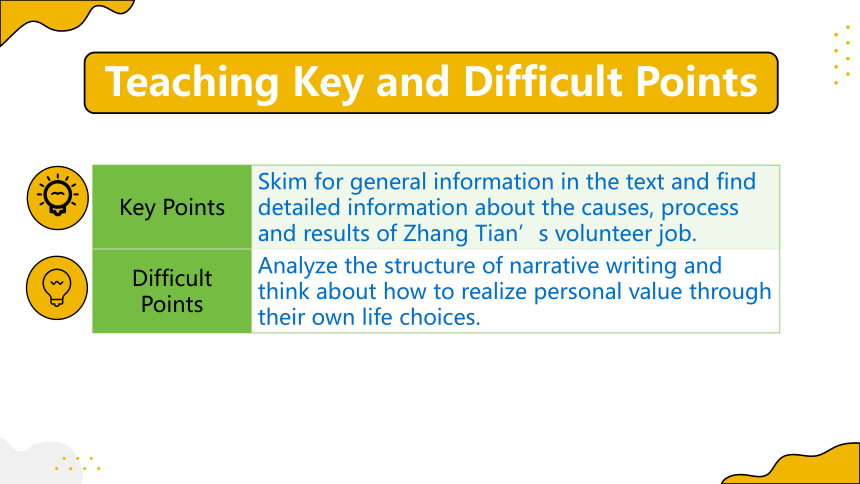


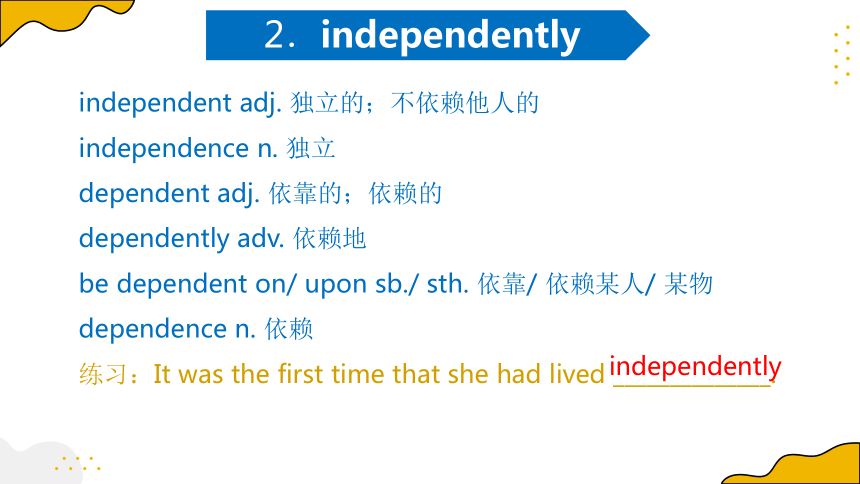
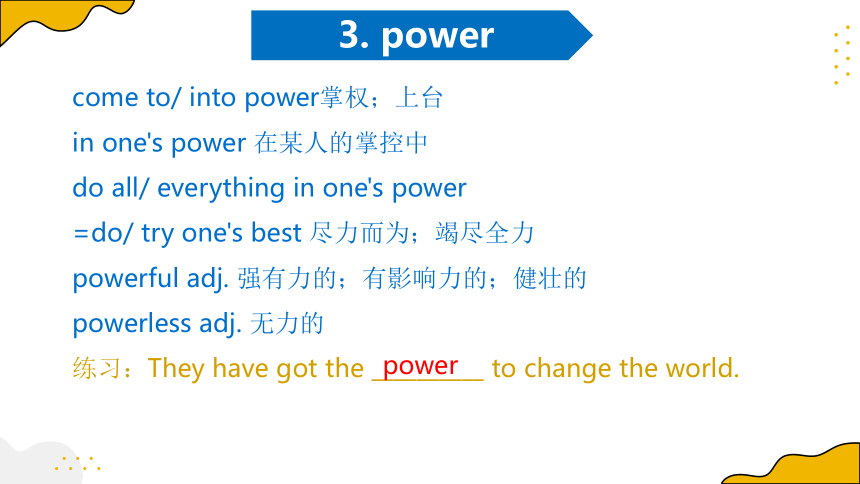
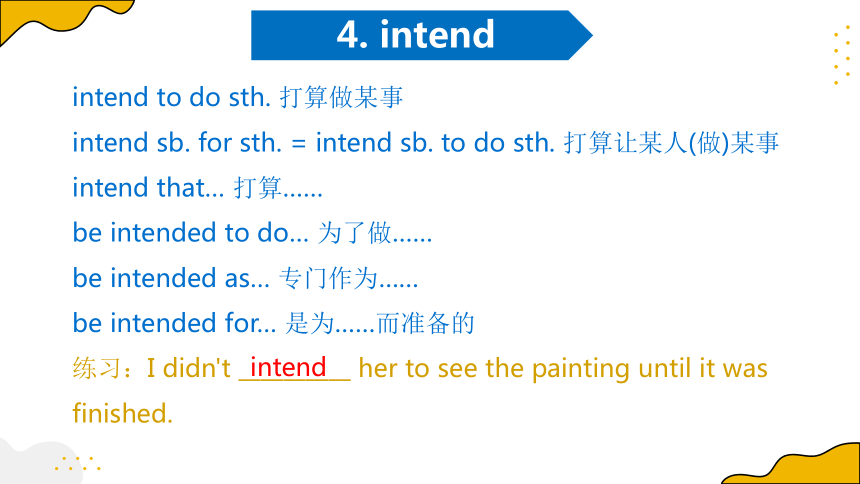
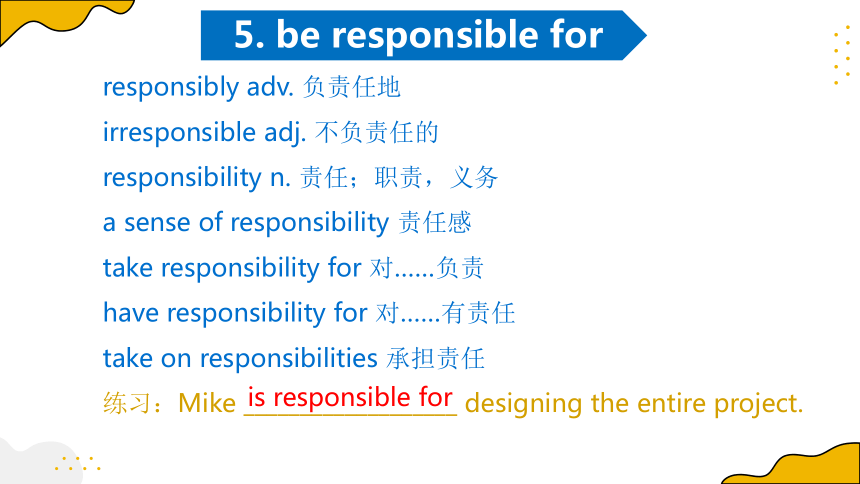
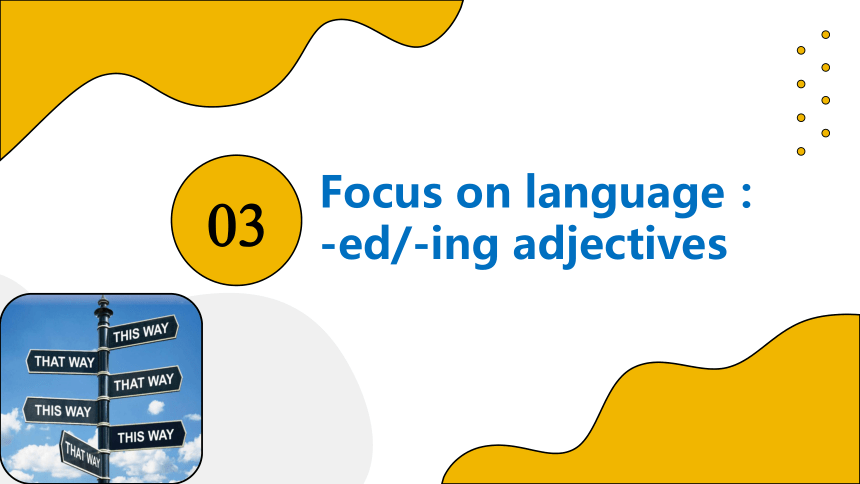
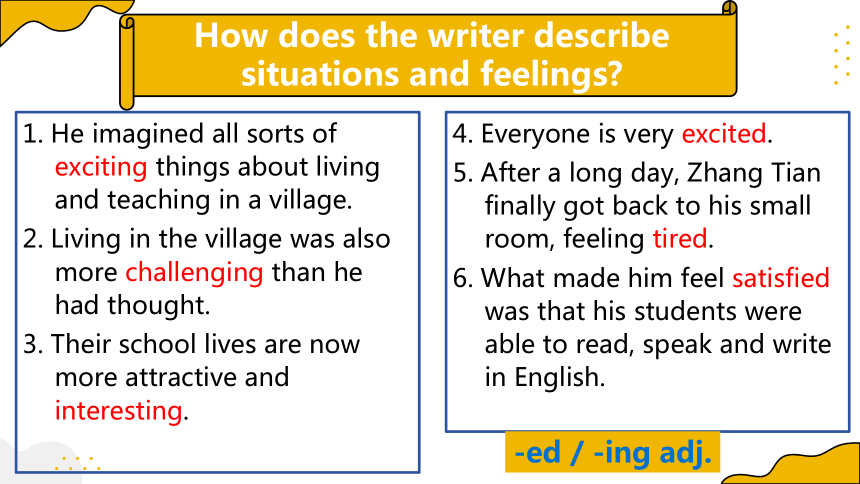
文档简介
(共30张PPT)
Unit 1 Life Choices
Lesson 3 Your life is what you make it
Teaching objectives, focus and difficulties
01
Teaching Objectives
Language Competence Understand the new words and phrases related to a volunteer job and different feelings.
Cultural Awareness Skim for general information in the text and find detailed information about the causes, process and results of Zhang Tian’s volunteer job.
Thinking Qualities Analyze the structure of narrative writings.
Learning Ability Learn Zhang Tian’s merits from his life choice, and think about how to realize personal value through their own life choices.
Key Points Skim for general information in the text and find detailed information about the causes, process and results of Zhang Tian’s volunteer job.
Difficult Points Analyze the structure of narrative writing and think about how to realize personal value through their own life choices.
Teaching Key and Difficult Points
New words
and expressions
02
1.apply
apply (to sb.) for sth. (向某人)申请某物
apply to 适用于
apply sth. to sth. 把某物应用/ 涂抹于某事/ 某物
apply oneself to (=be applied to) 致力于/ 集中精力于……
application n. 申请(书);用途
applicant n. 申请人
练习:I decide to _________ for the course that reflected my interest.
apply
2.independently
independent adj. 独立的;不依赖他人的
independence n. 独立
dependent adj. 依靠的;依赖的
dependently adv. 依赖地
be dependent on/ upon sb./ sth. 依靠/ 依赖某人/ 某物
dependence n. 依赖
练习:It was the first time that she had lived ______________.
independently
3. power
come to/ into power掌权;上台
in one's power 在某人的掌控中
do all/ everything in one's power
=do/ try one's best 尽力而为;竭尽全力
powerful adj. 强有力的;有影响力的;健壮的
powerless adj. 无力的
练习:They have got the __________ to change the world.
power
4. intend
intend to do sth. 打算做某事
intend sb. for sth. = intend sb. to do sth. 打算让某人(做)某事
intend that… 打算……
be intended to do… 为了做……
be intended as… 专门作为……
be intended for… 是为……而准备的
练习:I didn't __________ her to see the painting until it was finished.
intend
5. be responsible for
responsibly adv. 负责任地
irresponsible adj. 不负责任的
responsibility n. 责任;职责,义务
a sense of responsibility 责任感
take responsibility for 对……负责
have responsibility for 对……有责任
take on responsibilities 承担责任
练习:Mike ___________________ designing the entire project.
is responsible for
Focus on language:
-ed/-ing adjectives
03
1. He imagined all sorts of exciting things about living and teaching in a village.
2. Living in the village was also more challenging than he had thought.
3. Their school lives are now more attractive and interesting.
4. Everyone is very excited.
5. After a long day, Zhang Tian finally got back to his small room, feeling tired.
6. What made him feel satisfied was that his students were able to read, speak and write in English.
-ed / -ing adj.
How does the writer describe situations and feelings
1. … exciting things
2. Living ... challenging …
3. school lives … interesting.
4. Everyone … excited.
5. … feeling tired.
6. … feel satisfied ….
When we describe situations or things
-ed adj. describes people’s feelings.
When to use -ed / -ing adj.
exciting
challenging
interesting
excited
challenged
interested
excite
challenge
interest
exciting
tiring
satisfying
excited
tired
satisfied
excite
tire
satisfy
v.
-ing adj.
-ed adj.
Where are these adjectives from
verbs delight embarrass confuse bore disappoint frighten
-ing adj.
-ed adj.
delighting
delighted
embarrassing
embarrassed
confusing
confused
boring
bored
disappointing
disappointed
frightening
frightened
What are these verbs mainly about
Emotions
Work out the -ed/-ing adj. of the verbs.
Complete the Word Builder. Then use the words and phrases to complete the sentences below.
-ed / -ing Adjectives
Verb -ed Adjective -ing Adjective
to tire tired tiring
to excite
to surprise
to interest
to challenge
to satisfy
excited
exciting
surprised
surprising
interested
interesting
challenged
challenging
satisfied
satisfying
1. After a long day, Zhang Tian finally got back to his small room, feeling _____________.
2. He imagined all sorts of _____________ things about living and teaching in a village.
3. Living in the village was also more _____________ than he had thought.
4. It is not _____________ that PE is the kids' favourite subject!
5. Their school lives are now more attractive and _____________.
6. Zhang Tian is planning to organise the first-ever school concert! Everyone is very _____________.
7. What made him feel _____________ was that his students were able to read, speak and write in English.
tired
exciting
challenging
surprising
interesting
excited
satisfied
Which type of adjectives (-ed / - ing) describes situations, people or things Which type describes people’s feelings Give two examples of each.
a situations, people or things ( )
b people’s feelings ( )
-ing
-ed
Imagine all sorts of exciting thins
living in the village was also more challenging
feel tired
feel satisfied
Make sentences.
When do you send these emojis
Example:
I usually send to my friends when …
--- what they say delights me.
--- what they say is delighting.
--- I feel delighted.
A
B
C
D
E
F
1. -ing形容词主要用于修饰事物,表示事物的性质或特征,常译为“令人……的”;修饰人时,则表示此人具有此性质或特征。
The music is really disturbing when I sleep.
当我睡觉时这个音乐太烦人了。
The story is very interesting.
这个故事很有趣。(故事本身有趣)
The man is very interesting.
这个人很有趣。(人本身或人的性格有趣)
语法:-ing形容词和-ed形容词
2. -ed形容词通常用于说明人的感受,常译为“感到……的”,强调人自身的情感波动;修饰事物时,则多修饰神态,感觉,容貌,表情,声音,情绪等显示某人情感状况的名词。
He had a pleased smile on his face.
他脸上露出了满意的微笑。
I became interested in playing football thanks to a small accident.
多亏一件小事,我对踢足球变得感兴趣了。
He told me the news in a very excited voice.
他用非常激动的声音告诉了我这个消息。
3. 常用-ing形容词和-ed形容词
-ing形容词 -ed形容词
amazing(令人惊奇的) amazed(感到惊奇的)
worrying(令人担心的) worried(感到担心的)
touching(令人感动的) touched(感动的)
frightening(吓人的) frightened(受惊吓的)
moving(令人感动的) moved(感动的)
exciting(令人兴奋的) excited(感到兴奋的)
-ing形容词 -ed形容词
pleasing(令人高兴的) pleased(感到高兴的)
satisfying(令人满意的) satisfied(感到满意的)
surprising(令人吃惊的) surprised(感到吃惊的)
amusing(好笑的) amused(觉得好笑的)
interesting(有趣的) interested(感兴趣的)
boring(无聊的) bored(感到无聊的)
-ing形容词 -ed形容词
puzzling(令人迷惑的) puzzled(感到迷惑的)
encouraging(令人鼓舞的) encouraged(受鼓舞的)
exhausting(令人筋疲力尽的) exhausted(感到筋疲力尽的)
tiring(令人疲劳的) tired(感到疲劳的)
annoying(令人烦恼的) annoyed(烦恼的)
astonishing(令人惊奇的) astonished(感到惊奇的)
-ing形容词 -ed形容词
confusing(令人不解的) confused(迷惑不解的)
embarrassing(令人尴尬的) embarrassed(感到尴尬的)
inspiring(令人鼓舞的) inspired(受到鼓舞的)
shocking(令人震惊的) shocked(惊讶的)
terrifying(恐怖的) terrified(吓坏了的)
disappointing(令人失望的) disappointed(感到失望的)
1. The ____________ (move) story we heard over the radio made us cry.
2. We were very ____________ when we heard the ____________ news. (shock)
3. The tiger looked very ____________, but Li Ping wasn't ____________. (frighten)
4. Look! The students ____________ (seat) at the back of the classroom are playing computer games.
5. Mr Smith, ____________ (tire) of the ____________ (bore) speech, started to read a novel.
moving
shocked
shocking
frightening
frightened
Practice
seated
tired
boring
Express yourself
04
Group Work Work in groups of six. Imagine that Zhang Tian, Zhang Tian's students, and one of the villagers are invited to participate in a talk show. Each one of you will take on a role to talk about Zhang Tian's experience or what they know about Zhang Tian. The group leader is the talk show organiser.
Summary
05
Master new words and phrasal expressions, and grasp the usage of
-ed/-ing adjectives.
Homework
06
Organize your discussion into a short passage and then share it online with other classmates.
Unit 1 Life Choices
Lesson 3 Your life is what you make it
Teaching objectives, focus and difficulties
01
Teaching Objectives
Language Competence Understand the new words and phrases related to a volunteer job and different feelings.
Cultural Awareness Skim for general information in the text and find detailed information about the causes, process and results of Zhang Tian’s volunteer job.
Thinking Qualities Analyze the structure of narrative writings.
Learning Ability Learn Zhang Tian’s merits from his life choice, and think about how to realize personal value through their own life choices.
Key Points Skim for general information in the text and find detailed information about the causes, process and results of Zhang Tian’s volunteer job.
Difficult Points Analyze the structure of narrative writing and think about how to realize personal value through their own life choices.
Teaching Key and Difficult Points
New words
and expressions
02
1.apply
apply (to sb.) for sth. (向某人)申请某物
apply to 适用于
apply sth. to sth. 把某物应用/ 涂抹于某事/ 某物
apply oneself to (=be applied to) 致力于/ 集中精力于……
application n. 申请(书);用途
applicant n. 申请人
练习:I decide to _________ for the course that reflected my interest.
apply
2.independently
independent adj. 独立的;不依赖他人的
independence n. 独立
dependent adj. 依靠的;依赖的
dependently adv. 依赖地
be dependent on/ upon sb./ sth. 依靠/ 依赖某人/ 某物
dependence n. 依赖
练习:It was the first time that she had lived ______________.
independently
3. power
come to/ into power掌权;上台
in one's power 在某人的掌控中
do all/ everything in one's power
=do/ try one's best 尽力而为;竭尽全力
powerful adj. 强有力的;有影响力的;健壮的
powerless adj. 无力的
练习:They have got the __________ to change the world.
power
4. intend
intend to do sth. 打算做某事
intend sb. for sth. = intend sb. to do sth. 打算让某人(做)某事
intend that… 打算……
be intended to do… 为了做……
be intended as… 专门作为……
be intended for… 是为……而准备的
练习:I didn't __________ her to see the painting until it was finished.
intend
5. be responsible for
responsibly adv. 负责任地
irresponsible adj. 不负责任的
responsibility n. 责任;职责,义务
a sense of responsibility 责任感
take responsibility for 对……负责
have responsibility for 对……有责任
take on responsibilities 承担责任
练习:Mike ___________________ designing the entire project.
is responsible for
Focus on language:
-ed/-ing adjectives
03
1. He imagined all sorts of exciting things about living and teaching in a village.
2. Living in the village was also more challenging than he had thought.
3. Their school lives are now more attractive and interesting.
4. Everyone is very excited.
5. After a long day, Zhang Tian finally got back to his small room, feeling tired.
6. What made him feel satisfied was that his students were able to read, speak and write in English.
-ed / -ing adj.
How does the writer describe situations and feelings
1. … exciting things
2. Living ... challenging …
3. school lives … interesting.
4. Everyone … excited.
5. … feeling tired.
6. … feel satisfied ….
When we describe situations or things
-ed adj. describes people’s feelings.
When to use -ed / -ing adj.
exciting
challenging
interesting
excited
challenged
interested
excite
challenge
interest
exciting
tiring
satisfying
excited
tired
satisfied
excite
tire
satisfy
v.
-ing adj.
-ed adj.
Where are these adjectives from
verbs delight embarrass confuse bore disappoint frighten
-ing adj.
-ed adj.
delighting
delighted
embarrassing
embarrassed
confusing
confused
boring
bored
disappointing
disappointed
frightening
frightened
What are these verbs mainly about
Emotions
Work out the -ed/-ing adj. of the verbs.
Complete the Word Builder. Then use the words and phrases to complete the sentences below.
-ed / -ing Adjectives
Verb -ed Adjective -ing Adjective
to tire tired tiring
to excite
to surprise
to interest
to challenge
to satisfy
excited
exciting
surprised
surprising
interested
interesting
challenged
challenging
satisfied
satisfying
1. After a long day, Zhang Tian finally got back to his small room, feeling _____________.
2. He imagined all sorts of _____________ things about living and teaching in a village.
3. Living in the village was also more _____________ than he had thought.
4. It is not _____________ that PE is the kids' favourite subject!
5. Their school lives are now more attractive and _____________.
6. Zhang Tian is planning to organise the first-ever school concert! Everyone is very _____________.
7. What made him feel _____________ was that his students were able to read, speak and write in English.
tired
exciting
challenging
surprising
interesting
excited
satisfied
Which type of adjectives (-ed / - ing) describes situations, people or things Which type describes people’s feelings Give two examples of each.
a situations, people or things ( )
b people’s feelings ( )
-ing
-ed
Imagine all sorts of exciting thins
living in the village was also more challenging
feel tired
feel satisfied
Make sentences.
When do you send these emojis
Example:
I usually send to my friends when …
--- what they say delights me.
--- what they say is delighting.
--- I feel delighted.
A
B
C
D
E
F
1. -ing形容词主要用于修饰事物,表示事物的性质或特征,常译为“令人……的”;修饰人时,则表示此人具有此性质或特征。
The music is really disturbing when I sleep.
当我睡觉时这个音乐太烦人了。
The story is very interesting.
这个故事很有趣。(故事本身有趣)
The man is very interesting.
这个人很有趣。(人本身或人的性格有趣)
语法:-ing形容词和-ed形容词
2. -ed形容词通常用于说明人的感受,常译为“感到……的”,强调人自身的情感波动;修饰事物时,则多修饰神态,感觉,容貌,表情,声音,情绪等显示某人情感状况的名词。
He had a pleased smile on his face.
他脸上露出了满意的微笑。
I became interested in playing football thanks to a small accident.
多亏一件小事,我对踢足球变得感兴趣了。
He told me the news in a very excited voice.
他用非常激动的声音告诉了我这个消息。
3. 常用-ing形容词和-ed形容词
-ing形容词 -ed形容词
amazing(令人惊奇的) amazed(感到惊奇的)
worrying(令人担心的) worried(感到担心的)
touching(令人感动的) touched(感动的)
frightening(吓人的) frightened(受惊吓的)
moving(令人感动的) moved(感动的)
exciting(令人兴奋的) excited(感到兴奋的)
-ing形容词 -ed形容词
pleasing(令人高兴的) pleased(感到高兴的)
satisfying(令人满意的) satisfied(感到满意的)
surprising(令人吃惊的) surprised(感到吃惊的)
amusing(好笑的) amused(觉得好笑的)
interesting(有趣的) interested(感兴趣的)
boring(无聊的) bored(感到无聊的)
-ing形容词 -ed形容词
puzzling(令人迷惑的) puzzled(感到迷惑的)
encouraging(令人鼓舞的) encouraged(受鼓舞的)
exhausting(令人筋疲力尽的) exhausted(感到筋疲力尽的)
tiring(令人疲劳的) tired(感到疲劳的)
annoying(令人烦恼的) annoyed(烦恼的)
astonishing(令人惊奇的) astonished(感到惊奇的)
-ing形容词 -ed形容词
confusing(令人不解的) confused(迷惑不解的)
embarrassing(令人尴尬的) embarrassed(感到尴尬的)
inspiring(令人鼓舞的) inspired(受到鼓舞的)
shocking(令人震惊的) shocked(惊讶的)
terrifying(恐怖的) terrified(吓坏了的)
disappointing(令人失望的) disappointed(感到失望的)
1. The ____________ (move) story we heard over the radio made us cry.
2. We were very ____________ when we heard the ____________ news. (shock)
3. The tiger looked very ____________, but Li Ping wasn't ____________. (frighten)
4. Look! The students ____________ (seat) at the back of the classroom are playing computer games.
5. Mr Smith, ____________ (tire) of the ____________ (bore) speech, started to read a novel.
moving
shocked
shocking
frightening
frightened
Practice
seated
tired
boring
Express yourself
04
Group Work Work in groups of six. Imagine that Zhang Tian, Zhang Tian's students, and one of the villagers are invited to participate in a talk show. Each one of you will take on a role to talk about Zhang Tian's experience or what they know about Zhang Tian. The group leader is the talk show organiser.
Summary
05
Master new words and phrasal expressions, and grasp the usage of
-ed/-ing adjectives.
Homework
06
Organize your discussion into a short passage and then share it online with other classmates.
同课章节目录
- Unit 1 Life Choices
- Lesson 1 Lifestyles
- Lesson 2 Understanding and Coping with Stress
- Lesson 3 Your Life Is What You Make It
- Unit 2 Sports and Fitness
- Lesson 1 The Underdog
- Lesson 2 Rules of the Game
- Lesson 3 Running and Fitness
- Unit 3 Celebrations
- Lesson 1 Spring Festival
- Lesson 2 Special Occasions
- Lesson 3 Memories of Christmas
